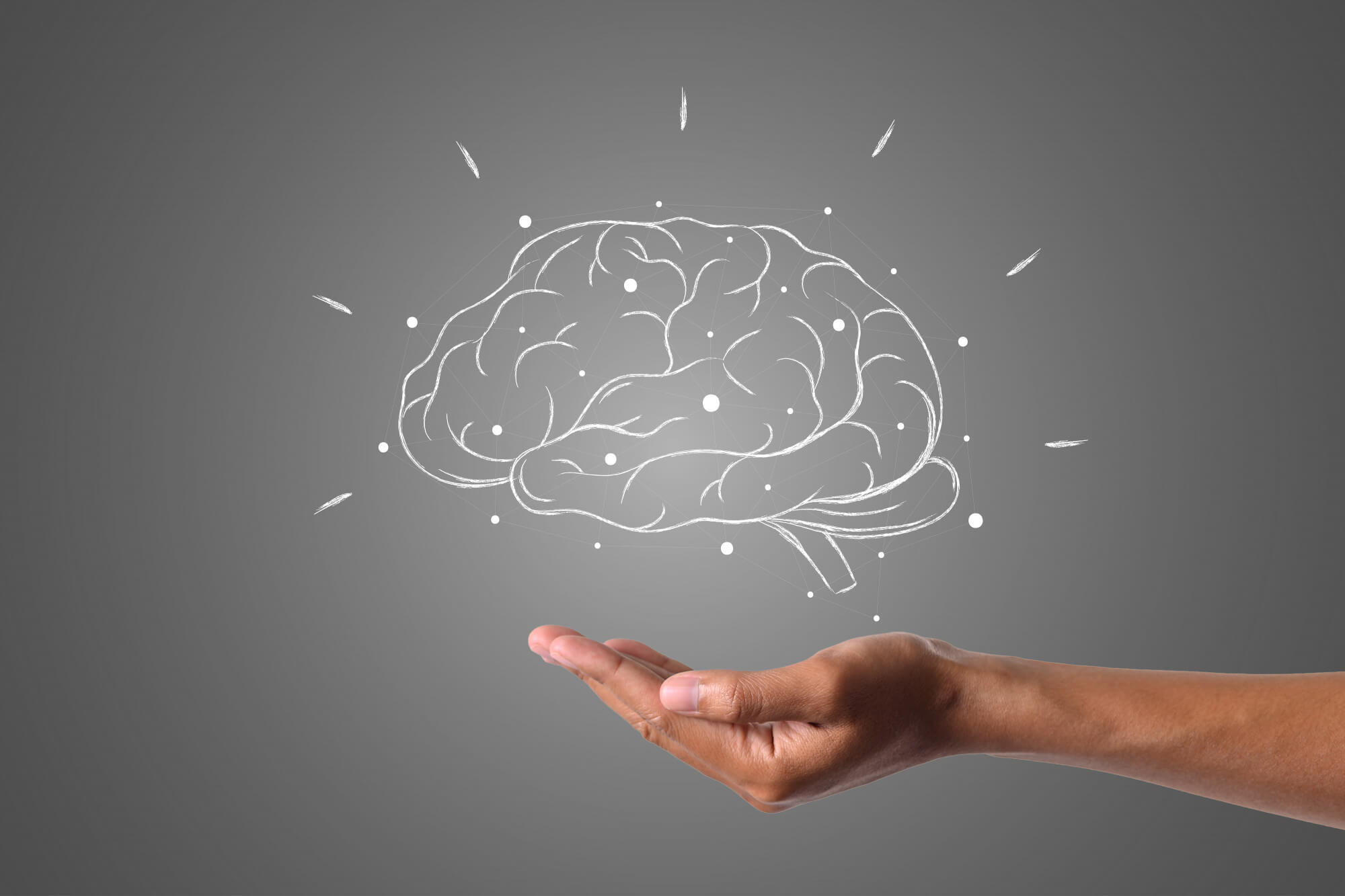Not Just For Billionaires: Longevity And Vitality For a Healthy Life
Strategies for taking control of biological aging
.jpg)
Headlines are increasingly dominated by the ambitions of billionaires who want to extend their life spans with the help of cutting-edge technologies. However, the desire for a longer and healthier life is a universal wish, and it must not be an exclusive privilege of the wealthy. Interestingly enough, scientific progress shows that even the average person can take control of their biological aging by slowing down the passage of time and increasing both their health and life expectancy.
The obsession of billionaires
Billionaires and their quest for eternal youth have captivated the public with reports of cryogenic freezing, experimental treatments, and other seemingly fantastic endeavors. These efforts are justified when it comes to advancing medical research, but they often overshadow the changes that individuals can make to improve their own life expectancy.
Understanding biological aging
Before we dive into practical advice, it's important to understand the mechanisms of biological aging. Ageing is a complex process that is influenced by a combination of genetic factors, environmental factors, and lifestyle. Telomeres, the protective caps at the ends of chromosomes, are comparable to our cells' biological clocks. Since they shorten each time cells divide, the risk of age-related diseases increases. Oxidative stress, inflammation and cell damage also contribute to the aging process.
Small steps, big impact
Healthy diet
A balanced diet with lots of fruit, vegetables, whole grains, lean protein and healthy fats provides the body with the nutrients it needs to repair and function cells. Foods that are rich in antioxidants counteract oxidative stress, while adequate protein intake helps maintain muscle mass.
Regular physical activity
Physical activity not only serves to get rid of pounds, but is also a cornerstone of longevity. Regular aerobic exercise, strength training, and flexibility exercises can help maintain muscle and bone mass, improve cardiovascular health, and increase overall wellbeing.
Stress management
Chronic stress accelerates the aging process by promoting inflammation and cell damage. Practices such as meditation, yoga, deep breathing, and mindfulness can mitigate the effects of stress and promote both mental and physical health.
Adequate sleep
Good sleep is essential for cell repair and regeneration. Aim for 7-9 hours of sleep per night in a pleasant, dark and quiet environment.
Social ties
Maintaining strong social ties can have a profound effect on longevity. Meaningful relationships contribute to emotional wellbeing and provide support during difficult times.
Mental stimulation
Keeping the brain active through learning, problem-solving, and interesting activities can counteract cognitive decline and improve mental acuity.
Avoid harmful habits
Smoking and excessive alcohol consumption contribute to cell damage and accelerate the aging process. Quitting smoking and limiting alcohol consumption can have far-reaching benefits.
Regular preventive checkups
Routine check-ups can identify health problems at an early stage and enable timely intervention and treatment.
Scientific breakthroughs for everyone
While the media often report on experimental treatments that are only affordable for the wealthy, there are some promising scientific breakthroughs that could benefit people from all walks of life:
Senolytics
These drugs target senescent cells, which build up as we age and contribute to inflammation and tissue damage. Research in the field of senolytics gives hope for interventions that could slow down the aging process.
Calorie restriction mimetics
Calorie restriction has been linked to an extended lifespan in various organisms. Scientists are developing compounds known as calorie restriction mimetics that could mimic the benefits of reduced calorie intake without extreme diets.
Metformin
This widely used diabetes drug has shown its potential as an anti-aging drug in various studies. Metformin's ability to modulate cell metabolism could lead to an increase in life expectancy.
Genetic findings
Thanks to advances in genetics, researchers have been able to identify genes associated with longevity. Even though gene therapy is still in its infancy, a better understanding of these genes could ultimately pave the way for personalized anti-aging measures.
Conclusion
Even though billionaires dominate the headlines with their quest for immortality, the reality is that breakthrough advances in the science of aging hold promise for all of us. By making simple but effective lifestyle changes and knowledge of the latest scientific findings, everyone can take their biological aging into their own hands. A longer and healthier life is within reach, not as an exclusive luxury but as a common goal for all of humanity.
References
Publiziert
14.3.2025
Kategorie
Longevity

Experte
Scientific Terms
Biological Age
Biological age is the age of cells in the body, which is determined by various properties and biomarkers that correlate with aging and decay in research.
Biomarkers
A specific substance, physical characteristic, gene, etc. that can be measured to indicate the presence or progress of a disease.
Metformin
A molecule derived from French hellebore that is used to treat type 2 diabetes (senile diabetes) and could be a medicine against longevity.
Chromosome
The compact structure in which a cell's DNA is organized and which is held together by proteins. The genomes of the various organisms are arranged in a different number of chromosomes. Human cells have 23 pairs.
Telomere/Telomere Loss
Gr. Télos' Ende 'and' Télos' Teil '
A telomere is a cap that protects the end of the chromosome from wear and tear, comparable to the awl on the end of a shoelace or the burnt end of a rope to prevent fraying. As we age, telomeres erode to the point where the cell reaches the Hayflick limit. This is the point at which the cell sees the erosion as a break in DNA, stops dividing and becomes senescent.
Senolytics
Senolytics are agents which can induce apoptosis of aged (senescent) cells and thus potentially reduce signs of aging
Gene therapy
The introduction of corrective DNA into human cells as a medical treatment. Certain diseases can be treated or even cured by incorporating a healthy DNA sequence into the genomes of certain cells. Scientists and doctors usually use a harmless virus to introduce genes into target cells or tissues, where the DNA is incorporated somewhere into the cells' existing DNA. CRISPR genome editing is also sometimes referred to as a gene therapy technique.
Headlines are increasingly dominated by the ambitions of billionaires who want to extend their life spans with the help of cutting-edge technologies. However, the desire for a longer and healthier life is a universal wish, and it must not be an exclusive privilege of the wealthy. Interestingly enough, scientific progress shows that even the average person can take control of their biological aging by slowing down the passage of time and increasing both their health and life expectancy.
The obsession of billionaires
Billionaires and their quest for eternal youth have captivated the public with reports of cryogenic freezing, experimental treatments, and other seemingly fantastic endeavors. These efforts are justified when it comes to advancing medical research, but they often overshadow the changes that individuals can make to improve their own life expectancy.
Understanding biological aging
Before we dive into practical advice, it's important to understand the mechanisms of biological aging. Ageing is a complex process that is influenced by a combination of genetic factors, environmental factors, and lifestyle. Telomeres, the protective caps at the ends of chromosomes, are comparable to our cells' biological clocks. Since they shorten each time cells divide, the risk of age-related diseases increases. Oxidative stress, inflammation and cell damage also contribute to the aging process.
Small steps, big impact
Healthy diet
A balanced diet with lots of fruit, vegetables, whole grains, lean protein and healthy fats provides the body with the nutrients it needs to repair and function cells. Foods that are rich in antioxidants counteract oxidative stress, while adequate protein intake helps maintain muscle mass.
Regular physical activity
Physical activity not only serves to get rid of pounds, but is also a cornerstone of longevity. Regular aerobic exercise, strength training, and flexibility exercises can help maintain muscle and bone mass, improve cardiovascular health, and increase overall wellbeing.
Stress management
Chronic stress accelerates the aging process by promoting inflammation and cell damage. Practices such as meditation, yoga, deep breathing, and mindfulness can mitigate the effects of stress and promote both mental and physical health.
Adequate sleep
Good sleep is essential for cell repair and regeneration. Aim for 7-9 hours of sleep per night in a pleasant, dark and quiet environment.
Social ties
Maintaining strong social ties can have a profound effect on longevity. Meaningful relationships contribute to emotional wellbeing and provide support during difficult times.
Mental stimulation
Keeping the brain active through learning, problem-solving, and interesting activities can counteract cognitive decline and improve mental acuity.
Avoid harmful habits
Smoking and excessive alcohol consumption contribute to cell damage and accelerate the aging process. Quitting smoking and limiting alcohol consumption can have far-reaching benefits.
Regular preventive checkups
Routine check-ups can identify health problems at an early stage and enable timely intervention and treatment.
Scientific breakthroughs for everyone
While the media often report on experimental treatments that are only affordable for the wealthy, there are some promising scientific breakthroughs that could benefit people from all walks of life:
Senolytics
These drugs target senescent cells, which build up as we age and contribute to inflammation and tissue damage. Research in the field of senolytics gives hope for interventions that could slow down the aging process.
Calorie restriction mimetics
Calorie restriction has been linked to an extended lifespan in various organisms. Scientists are developing compounds known as calorie restriction mimetics that could mimic the benefits of reduced calorie intake without extreme diets.
Metformin
This widely used diabetes drug has shown its potential as an anti-aging drug in various studies. Metformin's ability to modulate cell metabolism could lead to an increase in life expectancy.
Genetic findings
Thanks to advances in genetics, researchers have been able to identify genes associated with longevity. Even though gene therapy is still in its infancy, a better understanding of these genes could ultimately pave the way for personalized anti-aging measures.
Conclusion
Even though billionaires dominate the headlines with their quest for immortality, the reality is that breakthrough advances in the science of aging hold promise for all of us. By making simple but effective lifestyle changes and knowledge of the latest scientific findings, everyone can take their biological aging into their own hands. A longer and healthier life is within reach, not as an exclusive luxury but as a common goal for all of humanity.
Experte
Referenzen
Publiziert
14.3.2025
Kategorie
Longevity

Wissenschaftliche Begriffe
Biological Age
Biological age is the age of cells in the body, which is determined by various properties and biomarkers that correlate with aging and decay in research.
Biomarkers
A specific substance, physical characteristic, gene, etc. that can be measured to indicate the presence or progress of a disease.
Metformin
A molecule derived from French hellebore that is used to treat type 2 diabetes (senile diabetes) and could be a medicine against longevity.
Chromosome
The compact structure in which a cell's DNA is organized and which is held together by proteins. The genomes of the various organisms are arranged in a different number of chromosomes. Human cells have 23 pairs.
Telomere/Telomere Loss
Gr. Télos' Ende 'and' Télos' Teil '
A telomere is a cap that protects the end of the chromosome from wear and tear, comparable to the awl on the end of a shoelace or the burnt end of a rope to prevent fraying. As we age, telomeres erode to the point where the cell reaches the Hayflick limit. This is the point at which the cell sees the erosion as a break in DNA, stops dividing and becomes senescent.
Senolytics
Senolytics are agents which can induce apoptosis of aged (senescent) cells and thus potentially reduce signs of aging
Gene therapy
The introduction of corrective DNA into human cells as a medical treatment. Certain diseases can be treated or even cured by incorporating a healthy DNA sequence into the genomes of certain cells. Scientists and doctors usually use a harmless virus to introduce genes into target cells or tissues, where the DNA is incorporated somewhere into the cells' existing DNA. CRISPR genome editing is also sometimes referred to as a gene therapy technique.
.svg)














